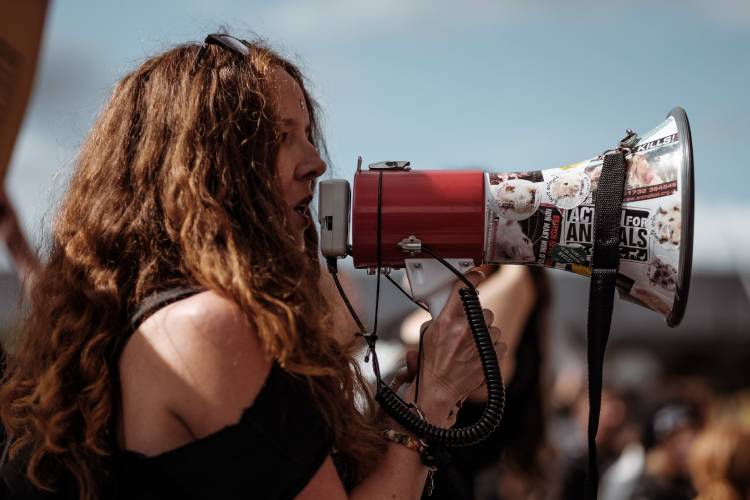Picture a scenario where you possess the ability to create a meaningful impact in the lives of others. You might not be directly affected by it, but your actions can be the catalyst for positive change in communities.
This becomes even more important when dealing with a case as notorious as Camp Lejeune. In this blog, we’ll explore how your involvement can have a profound impact on the Camp Lejeune water contamination crisis.
Mobilizing Communities for Action
A study published in BMJ Journals shows the importance of community mobilization interventions in promoting community participation and improving public health. These interventions involve collaboration between local individuals and external agents to address the causes of ill health through bottom-up leadership and empowerment.
For example, participatory women’s groups have been used to enhance maternal and newborn health. Skilled peer leaders assist group members in navigating a participatory learning and action process. This, in turn, helps them determine, devise, and execute plans to tackle community health concerns. The study found that this approach showed a 20% reduction in neonatal mortality at the population level.
Similarly, in the context of the Camp Lejeune incident, community mobilization can play a vital role. It enables affected individuals, alongside external support, to come together and take charge of their situation. With active involvement, they can collectively identify the contamination’s causes and work toward solutions to safeguard public health.
One approach that resonates with this study involves participatory groups. These groups, guided by trained peer facilitators, engage in a learning and action cycle. They prioritize, plan, and implement strategies to tackle local health issues. This, in turn, brings about positive changes in communities affected by water contamination at Camp Lejeune.
Support Affected Families and Individuals
Public awareness can be a lifeline for those affected by Camp Lejeune water contamination. You, as a change-maker, play a crucial role in supporting families and individuals facing this crisis. Your involvement can provide a beacon of hope in their challenging journey to justice and well-being.
One way you can assist is by helping victims navigate the legal procedures related to the Camp Lejeune lawsuit. By connecting them with skilled lawyers who specialize in similar cases, you enable them to assert their legal rights effectively. They can also help them file a Camp Lejeune contaminated water lawsuit.
These legal actions are even more vital when we consider the extent of suffering caused by the contamination. According to TorHoerman Law, the toxic water has led to serious health conditions among the residents of Camp Lejeune. These include a heightened risk of various cancers such as kidney, liver, Parkinson’s Disease, neurological disorders, birth defects, and among others.
In the face of such adversity, your support can make a profound difference. By providing access to legal representation, you empower affected individuals to pursue justice. You also empower them to hold responsible parties accountable for the harm caused by the contaminated water. Your actions can offer a glimmer of hope to those in need during these challenging times.
Advocacy and Policy Reform
Public awareness can be a catalyst for essential advocacy and policy reform in the face of the Camp Lejeune water contamination crisis. You, as a change-maker, have the power to influence and drive changes at both the local and national levels.
Recent findings from the U.S. Geological Survey indicate a widespread issue concerning PFAS contamination in the United States. The study suggests that more than half of tap water across the nation may contain at least one type of monitored PFAS. Importantly, the concentrations of PFAS were found to be similar in both public water supplies and private wells.
Armed with this knowledge, your active engagement can help advocate for stricter regulations and policies regarding PFAS in water sources. You can be a driving force in pushing for comprehensive reforms. These reforms ensure clean drinking water for communities across the country, addressing both Camp Lejeune and the broader national issue. Your advocacy can make a significant difference in protecting public health.
Foster Accountability and Transparency
Public awareness is a potent tool for fostering accountability and transparency in addressing the Camp Lejeune water contamination crisis. As a change-maker, you can hold responsible parties accountable and ensure that information flows freely to those affected.
As per the Environmental Protection Agency (EPA), there is a growing scope of PFAS contamination in the United States. As of August 2023, 3,186 sites across 50 states, the District of Columbia, and two territories witnessed contamination issues.
Your active involvement can push for greater transparency in reporting contamination data and its effects. By advocating for accountability from both government agencies and private entities, you contribute to a more open and accessible dialogue. Your efforts can lead to more informed decision-making and stronger safeguards for public health.
Conclusion
It’s clear that your awareness can be a force for positive change in the face of a crisis like this. By following these strategies, you can aim to bring a large-scale and tangible difference. The time for change is now, and your involvement can be the driving force for safer, cleaner water and improved public health. With your active engagement, the path to a better future for affected communities becomes clearer and more attainable.
